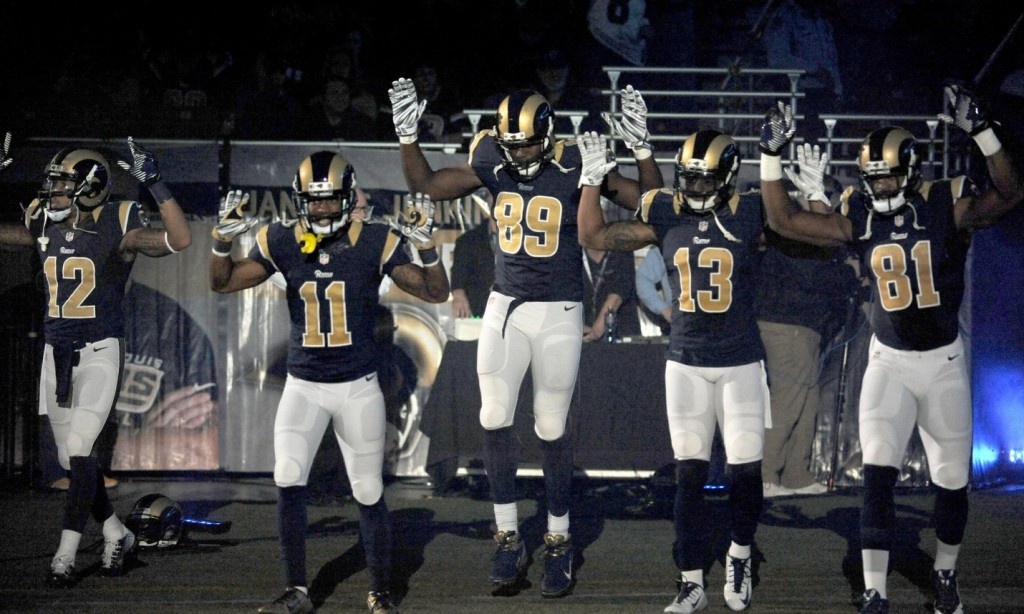Photograph: LG Patterson/AP
Presiding Bishop, Katharine Jefferts Schori issued a statement on moving forward from the Ferguson decision which you might have missed; it came out just before Thanksgiving, just after the shooting of Tamir Rice, and a week before the Eric Garner decision.
From her statement:
I ask you to stand with hands extended in love, to look for the image of God in every neighbor, and to offer yourself in vulnerability for the sake of reconciliation across this land.
In calling for reconciliation, and personal acts of justice and solidarity, Jefferts Schori offers us as individuals a way forward that transcends our typical thinking of moving forward. I know many people already feel like they’ve moved forward on Ferguson and Michael Brown; certainly there are people who will see this post and feel irritated that it’s still being discussed at all. What’s important is to remember that moving forward isn’t a one-time action; much like our Advent wait, it’s a series of actions that we repeat, practicing patience, hope, and vulnerability.
I thought the type of personal actions Jefferts Schori references would be hard to criticize, and hard to mischaracterize. Sadly, that doesn’t stop people from doing precisely that. When five St Lous Rams football players made personal statements by marching onto the fields with their hands held high, it was criticized almost immediately, and reframed as a ‘political action’.
In focusing the criticism on the idea that these five men had behaved ‘politically’, the pundits were able to lash out at the players and make their own political statements. In response, the Guardian columnist Roxane Gay noted the complexity of separating the personal from the political in contemporary black life, while asserting that this was a personal act of reconciliation and moving forward.
From the Guardian:
But protesting the death of Michael Brown was not a political act – at least, not in the way it is being framed by political pundits. It was the act of black men who are or may someday parent black children. They are men with significant others and parents and siblings who also know the challenges of living and breathing while black. They are men who don’t want to die for being black. They don’t want their children to die for being black. I cannot think of a more personal act.
Her ending words complemented the message of our Presiding Bishop:
But those five football players may have offered us a glimpse of the way forward. They committed a personal act. They made a clear and concise statement that they would not stand, silently, in the face of injustice. They forced us all to look at the things from which we all too often choose to look away. They reminded us of the precarious nature of black life in America, and how that nature needs to change.
Instead of grounding the discussion of how we can achieve a more equitable racial climate in empty political rhetoric, the “tasteless” and “inflammatory” members of the St Louis Rams – those five brave black men – held their hands high in the air, their chests open and vulnerable, in the fervent hope that our minds and hearts might follow.
Hands held high in a moment of openness and vulnerability, these five men modeled a way forward; the very way forward that our Presiding Bishop described in her statement. Are you moving forward? Do you see others criticizing your vulnerability, your openness, your decision to remain engaged? Are there people in your community moving forward who could use your support?
Posted by David Streever

